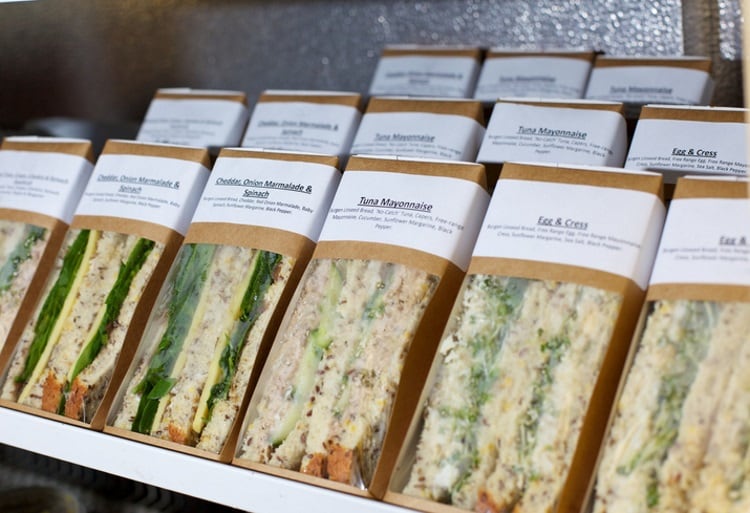Many bakers searched frantically for alternative revenue streams during the peak of lockdown, resulting in a rise of online and home delivery services. But while sights are set on making up for lost earnings, experts warn businesses not to let vital food safety standards slip.
“Food safety standards and laws, such as the EU FIC Regulation, are in place for a reason,” said Kirstie Jones, environmental health safety officer at Navitas Safety, administrators of digital food safety management, compliance and training.
“This isn’t just additional paperwork and red tape getting in the way of your business and its earnings, but rather a way to protect the health, wellbeing and, in some cases, lives of your customers.”
According to Jones, for online sales, allergen information must be available at the point of selection and the point of delivery. Special consideration must also be given on how the information is communicated, such as stickers with the full list of ingredients.
Introducing this additional step creates another element of a food operation that needs to be continuously monitored and managed.
“An area of particular concern is the inconsistent provision or lack of allergen information. But to combat the issue, new legislation known as Natasha’s Law is coming into force in October 2021,” added Jones.
“The law will change the way food businesses are to provide allergen labelling information for Prepacked Direct Sale (PPDS) food. It will require the name of the item and a full ingredients list with emphasised allergenic ingredients to be displayed on the packaging of all PPDS foods.”
Dark kitchens and transparency
In recent months in particular, there has been a rise in the ‘dark kitchen’ concept – also known as virtual kitchens, cloud kitchens or ghost kitchens – which refers to kitchens producing foods sold exclusively through delivery services, such as UberEats and Deliveroo.
Although the majority of dark kitchens are well managed by large, reputable companies or aggregators, some are not and it’s these that are putting customers at risk.
“The problem is that we are much less aware of the origin of foods, and the process steps that it has been through, meaning all traceability is lost,” said Jones.
“There are usually little to no controls in place so allergen information can also be missed, causing issues with inaccuracies. Legally, an operator is not allowed to tell a customer that they are unsure of the allergenic content of any food produced.”
The rise of home bakeries
In a similar trend, there has been increasing uptake in home bakeries with people utilising their additional free time honing their baking skills and then using platforms, such as Instagram, to set up shop as a business, selling their baked goods to the public.
“These new ventures must meet the same food safety standards as any other food establishment,” added Jones.
“Regardless of the quantity of products being sold or whether orders are just being made by friends and family, allergen management is a huge responsibility, and one that must be taken seriously.
“Put simply, allergen information needs to be accurate and readily available. There needs to be one chosen method that is implemented consistently to avoid instances of providing inaccurate information that may cause an allergy sufferer to become ill or even die from a severe reaction.”
Local authorities are aware of the seriousness at stake and have been reminding bakers to register their businesses and make sure to have the appropriate management measures in place. Failure to do so could result in prosecution, reputational damage and even forced closures.
“As bakeries navigate what is being coined the new normal – a world in which there is an increased focus on health, safety and precaution – and the enforcement of Natasha’s Law edges closer, compliance with food standards must remain a priority,” said Jones.
Navitas helps businesses of all sizes to get back up and running confidently and safely from not only a COVID-standpoint, but with regards to allergens, too.




